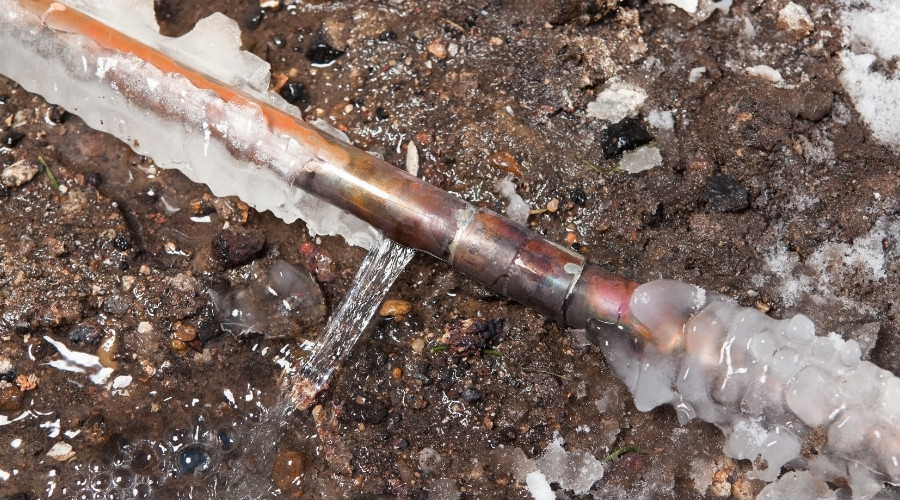Plumbers in Bensalem, PA, share ways to protect the plumbing and prevent frozen and burst pipes this winter.
Andalusia, United States - November 27, 2025 / Plumbing Pals /
How to Prevent Frozen Pipes This Winter
When temperatures drop, plumbing systems face extra stress, especially in unheated or poorly insulated areas of a building. Frozen pipes can lead to a pipe burst, water damage, and expensive emergency repairs. Taking preventive steps before and during cold snaps dramatically lowers the risk of freezing pipes and related problems. This post provides an overview of strategies to prevent frozen pipes, including pipe insulation, maintaining indoor heat, and winterizing outdoor faucets.
Insulate the Pipes
 One of the most effective defenses against frozen pipes is adding pipe insulation to exposed lines. Pipes routed through unconditioned spaces such as attics, crawl spaces, unfinished basements, or garages are especially vulnerable because cold air circulates more freely in these areas. When temperatures fall, water inside unprotected pipes can freeze, expand, and cause a damaging pipe burst.
One of the most effective defenses against frozen pipes is adding pipe insulation to exposed lines. Pipes routed through unconditioned spaces such as attics, crawl spaces, unfinished basements, or garages are especially vulnerable because cold air circulates more freely in these areas. When temperatures fall, water inside unprotected pipes can freeze, expand, and cause a damaging pipe burst.
Applying pipe insulation creates a thermal barrier between cold air and the water inside the pipe. Foam sleeves, fiberglass wraps, or insulated tape can be used to insulate pipes of different sizes and materials. Extra attention should be given to pipes near exterior walls, below windows, or close to vents and drafty openings, where freezing pipes are more likely.
Pipe insulation does more than just guard against a burst pipe. Insulated hot water lines can hold heat longer, which may reduce the time it takes for warm water to reach fixtures. For properties that have dealt with frozen pipes in previous winters, taking the time to insulate pipes in known trouble spots is an especially smart preventative measure.
Keep the Heat on and Open Cabinets
 Indoor heating is a key ally in the fight against frozen pipes. Keeping the heating system running and setting the thermostat to a consistent temperature during cold weather helps ensure that indoor spaces—and the plumbing within them—stay above freezing. Severe overnight temperature drops or large swings between day and night can increase the risk of freezing pipes, particularly in rooms at the edges of the structure, such as over-garage bonus rooms, additions, and basements.
Indoor heating is a key ally in the fight against frozen pipes. Keeping the heating system running and setting the thermostat to a consistent temperature during cold weather helps ensure that indoor spaces—and the plumbing within them—stay above freezing. Severe overnight temperature drops or large swings between day and night can increase the risk of freezing pipes, particularly in rooms at the edges of the structure, such as over-garage bonus rooms, additions, and basements.
Another simple tactic is to open cabinets that hide plumbing, especially in kitchens and bathrooms. Cabinet spaces often trap cooler air, which leaves the pipes inside more exposed to low temperatures. When cabinet doors remain open, warm air from the living areas circulates more freely around the pipes, reducing the chance of a freeze. This is particularly useful for sinks located on exterior walls, where cold air can penetrate more easily.
Combining steady indoor heat with open cabinets and proper pipe insulation builds multiple layers of protection for the plumbing system. Regular heating system maintenance further supports this strategy by helping equipment run reliably during the coldest periods, when the risk of a burst pipe is at its highest.
Winterize Outdoor Faucets
Outdoor plumbing fixtures are among the first components to feel the impact of icy weather, making them prime candidates for winter preparation. Properly winterizing outdoor faucets helps prevent trapped water from freezing, expanding, and cracking either the fixture itself or the connected supply line inside the wall.
Winterization begins with disconnecting any hoses attached to outdoor faucets. Hoses should be drained completely and stored indoors so residual water cannot freeze and force pressure back into the pipes. After hoses are removed, the shutoff valve controlling water to the outdoor faucet—usually located inside the home or basement—should be turned off, if one is available.
Once the water supply is closed, the outdoor faucet should be opened to allow any remaining water in the line to drain out. As a final layer of protection, an insulating cover can be installed over each outdoor faucet. These covers help block cold air and wind, lowering the chance that the fixture will freeze.
When hoses are disconnected, lines drained, shutoff valves closed, and each outdoor faucet protected with an insulating cover, the risk of winter-related damage to exterior plumbing and connected interior piping is greatly reduced.
By insulating vulnerable pipes, maintaining consistent indoor heat, opening cabinets, and carefully winterizing every outdoor faucet, households can significantly reduce the chances of frozen pipes, leaks, and pipe bursts during the coldest months.
About Plumbing Pals
Plumbing Pals is a highly-rated plumbing, heating, and cooling company with quality-trained, licensed, and certified technicians in Bensalem. They offer no-frills, no-fuss service and upfront pricing for all your plumbing needs. Call them for burst pipe repair services in Bensalem, PA.

Contact Information:
Plumbing Pals
901 Tennis Ave, 895 unit B
Andalusia, PA 19020
United States
Travas Marko
(267) 651-1940
https://plumbingpals.com/bensalem/


